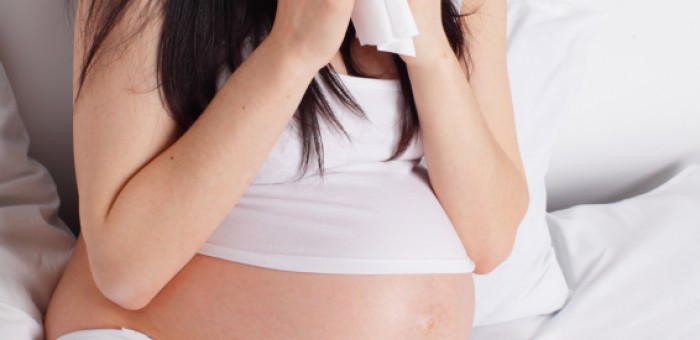 |
| Image Source: boogordoctor.com |
Pregnancy rhinitis is characterized by a stuffy nose and a generally uncomfortable nasal condition (constant sneezing, coughing, itchy nose, etc). It typically occurs during the first trimester of the pregnancy but has been known to affect women anytime during the entire term. Otolaryngologists suppose that the increased levels of estrogen and blood during the pregnancy enlarge the mucus membranes of the nasal passage, which causes the feelings of stuffiness.
 |
| Image Source: babycenter.com |
Pregnancy rhinitis should clear up within two weeks of giving birth. Treatments are rarely given to women while pregnant to protect the fetus. However, some women do suffer from severe episodes of rhinitis. For these cases, only three treatments are considered. These are: decongestants, antihistamines, or saline drops – the latter considered the safest and most recommended course. The first two options have been suggested to potentially have harmful effects against fetuses. While recent studies have refuted these claims, it is still best to discuss treatment options with one’s OB/GYN and Otolaryngologist.
 |
| Image Source: babynamequest.com |
This type of rhinitis is similar to seasonal allergy in that it can be managed effectively through thorough research and proper activities such as drinking more fluids and sleeping with the head slightly elevated. A humidifier may also considered to control moisture levels.
Dr. Robert R. Beltran is a recognized otolaryngologist in Irvine, California. Learn more about his practice areas by following this Twitter account.